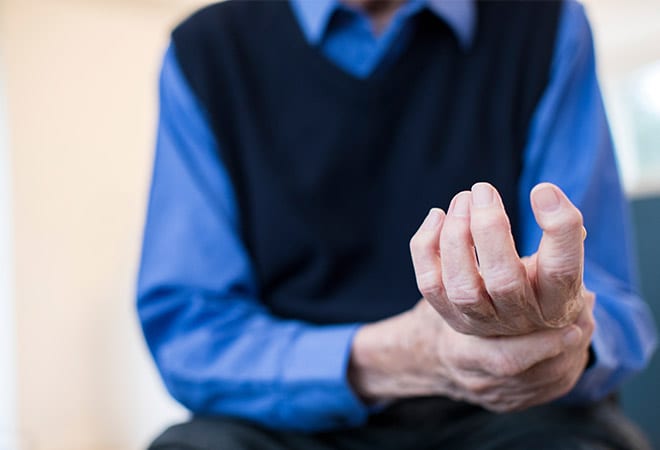Pseudogout
What Is Pseudogout?
Pseudogout refers to gout-like attacks, characterized by acute localized pain and swelling, that occur in patients with calcium crystal deposits in the joints. Chondrocalcinosis is the term used to describe the calcium-containing deposits that are found in cartilage and which are usually visible on joint x-rays.

Cause
Pseudogout is caused by deposits of calcium pyrophosphate crystals in joint tissues. In most cases, crystals form without a known specific reason. In some instances, a pattern of afflicted family members suggests a genetic disorder, possibly an enzyme deficiency. Disorders of the thyroid or parathyroid glands may also be associated.
Diagnosis
Pseudogout is diagnosed by finding crystals in fluid removed by a needle from affected joints. X-ray findings of chondrocalcinosis are frequently seen in these patients. Other causes such as gout and infection must be ruled out.
Health Impact
- Pseudogout afflicts about 3% of people in their 60s and increases with age to as high as 50% in people over 90.
- Acute attacks of pseudogout often occur in the knees and are incapacitating for days or weeks.
- Crystal deposits can contribute to a severe form of joint degeneration resulting in chronic disability.

Treatment
Oral anti-inflammatory drugs and corticosteroid joint injections are successful in shortening the period of pain and dysfunction of acute episodes of pseudogout. Treatments to prevent attacks, such as colchicine, may be effective. Unfortunately, no treatment is available to dissolve the crystal deposits. Controlling inflammation helps to halt the progression of joint degeneration that often accompanies pseudogout.
The Rheumatologist’s Role in the Treatment Of Pseudogout
Rheumatologists are actively engaged in research into the causes of pseudogout so that more effective preventive and therapeutic interventions can be devised. Special skills in the use of anti-inflammatory drugs are required in treating pseudogout since the affected senior population is more susceptible to side effects these medicines. A rheumatologist may need to evaluate the patient on the advisability of surgery on arthritic joints. Rheumatologists direct a team approach to the chronic, degenerative consequences of crystal deposition. Involvement of physical and occupational therapists, counselors and nurses may be needed.
